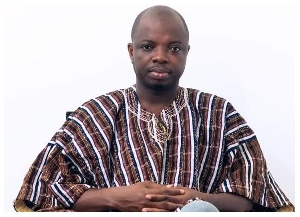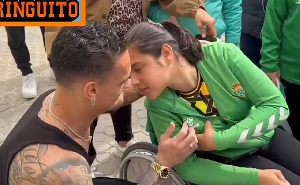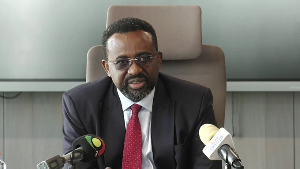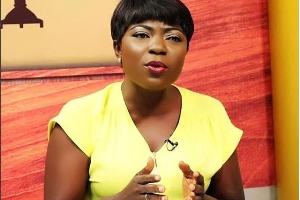By John Amponsah
The book is entitled“My First Coup d'Etat” and I have just read it. In my view it is imperative that all conscientious Ghanaians interested in the life experiences of our new president read this book. Published right at the beginning of July 2012, who at the time would have thought that the then vice president of Ghana will become president of the country due to the death of late President Mills?
You must read this book if you can. It was written by a Ghanaian for Ghanaians. If you grew up in Ghana, you will totally relate to the subject material, quite likely much more so than any foreigner might. In my view it will be sad if John Mahama's book ends up being read mostly by only foreign intellectuals or visitors to Ghana. Eminent African writers such as Chinua Achebe, Ngugi wa Thiong'o and Nuruddin Farah have already praised President Mahama's book with very favourable reviews. Other favourable reviews from Western sources have been given by the likes of Andrew Solomon, Aminata Forna and the Wall Street Journal.
Yes, it would be sad if this book written by our current president is read only by foreign intellectuals, foreign corporate business executives, visiting journalists, ambassadors, Peace Corps volunteers, foreign politicians, foreign strategists and those working for foreign intelligence agencies.
Not only will it be sad, it will also be a wasted opportunity. The title of the book could aptly be changed to “The Making of John Dramani Mahama.” In what I believe to be quite a remarkable way, President Mahama shows the world his very intimate thoughts, feelings, political views and very personal life history as well as the history of Ghana and Africa as seen through his life experiences and he does so in a way that I think is very rare for an African leader to do. The only other African leader I can think of right now who has done something similar in recent times is Nelson Mandela, when he wrote the book “Long Road to Freedom”, a great book indeed. Although the subject matter and context of Mandela’s book is different from Dramani Mahama’s, they both share common themes such as early childhood experiences in the African village setting as well as later life experiences that moulded each leader.
If you want to understand our current president, you need to read this book. The subject matter is about life in Ghana since the Nkrumah years. With expert flair and much humour, President Mahama paints a mosaic of life in Ghana, starting from his early years, into his adolescent years, university life and beyond, sharing very intimate stories depicting his experiences.
It was not straightforward for me to categorise this book. It is a mix of adventure, politics, history, philosophy, psychology, culture and much humour which a Ghanaian will easily appreciate. Through these stories you will learn about the personal effects of Ghana's first coup (the one which toppled Nkrumah) on President Mahama's father. You will reminisce about secondary school 'chop boxes', you will learn about the president's early social life experiences – his first experiences with romance and his numerous brushes with death while growing up. Most importantly, you get a glimpse of one of the central principles of the president, such as how since his childhood he has stood up for what he believed in, stood up against bullies and injustice even when it came at some personal cost. You will learn about how the president came to have socialist leanings and why those ideologies evolved in his mind into what they are now. You will learn about why the president reveres his father so much and how he embodied many of the values of E. A. Mahama. You will also learn about his early attempts at assuming positions of leadership and about his revolutionary interests and activities as a young man. You will learn these and much more. It is an invaluable text.
One criticism I have about the book is that very little is written about the political landscape of Ghana's Second Republic. I can understand that the president wrote primarily from the point of view of his experiences and at the time the president's father had been banned from politics for ten years by the coup makers who ousted Nkrumah's government so there was nothing to talk about regarding any roles President Mahama’s father could have played in Ghanaian politics during that time. I however think the president could have still mentioned more, and I couldn't help thinking that perhaps this omission was due to that period being an important one for Mr Edward Akuffo Addo, the father of the current leader of the opposition NPP party, who was Ghana’s president from 1970 to 1972 before his (and Busia’s) government was brought down by Colonel Acheampong? Was it politically expedient for our current president to avoid going into detail for that time of Ghana's history? After all, John Dramani Mahama is still a politician. If so, it was a clever move but perhaps one that limited his coverage of Ghana's political history up to the time of the fourth republic began. I leave that to readers of the book to decide for themselves whether they think enough was said about the Second Republic or not.
Otherwise if you are Ghanaian you are bound to gain some insight as well as possibly reminisce or enjoy reading about Colonel (later promoting himself to General) Acheampong's ideas regarding “Operation Feed Yourself”, “Operation Keep Right” and other schemes hatched by Acheampong as well as the emergence of the term “kalabule”. You will learn about personal interactions and the friendship Acheampong had with E.A. Mahama, the president's father and about why the Supreme Military Council finally toppled Acheampong. You will learn about President Mahama’s (in my view) very interesting experiences while living in Nigeria, just before the time Ghanaians were sent home en masse. You will learn that President Mahama (in my view, based on what he wrote) is definitely against military governments in Africa and the backwardness they inflicted on African people. In the book, this chapter is called “The Lost Years”. You will learn that although President Mahama (in my view, based on the president’s words) implicitly supported the revolution that was brought about by Rawlings, he abhorred the violence and lawlessness meted out by Rawlings' soldiers on the streets – soldiers whose new found power was out of control and who in many cases abused this power – meting out summary discipline and even indulging in sad wanton killings with no heavy consequence. In my view, based on what he wrote in his book, the president definitely supports democratic governance over military dictatorship.
One final section of the book I would like to highlight here deals with the President's ideological position. In his earlier years, his political ideology was based on Soviet-type socialism, yet after studying in Russia, President Mahama had these words to share toward the end of his book:
“Being there, I saw first hand how in practical terms the socialism by which the Soviet Union was being governed did not automatically guarantee that people's lives were either productive or dignified. This adjusted understanding of socialism began to move me away from a devotion to any one ideology or archetype”
On the same page, the president then goes on to say:
“Just as the Soviet Union had changed significantly during the two years I'd spent there, I had also changed. I no longer believed in absolutes. Since their inception, younger nations like Ghana had in some fashion been emulating or replicating the political models of the two superpowers, the United States and the Soviet Union. I now realised that even they didn't have the answers. They were still trying, to borrow a phrase from the preamble of the United States Constitution, “to for a more perfect union.” Ghana was no different, and for me or anybody else to expect it to achieve that perfection after just thirty-one years of independence [i.e. speaking of when he returned in 1988] was to deny it the right to grow and learn on its own terms, based on its own potential and needs. Dr. Kwame Nkrumah said, “The best way to learn to become an independent sovereign state is to be an independent sovereign state””
I was glad to read the above encouraging words, especially those last ones attributed to the late Nkrumah, and it remains to be seen if the President can actually live up to his own words. In today’s world, it is not so easy for countries with little economic, military and hence little political power to dodge the interference of superpowers like the US and China in order to remain independent sovereign states. The above statement by the president applies as well to today's political landscape as it did back in 1988 and back in Nkrumah’s time, only that in today's world small countries like Ghana have to deal not only with China and the US but also with nations like Russia, India, Brazil, South Korea, Japan and of course the EU to mention a few. It is up to Ghanaian leaders chosen by the people to come up with practical and workable tailor made systems that work for Ghana and not to simply copycat what is done in other politically more powerful nations.
As may be seen from what I have written above, an interested Ghanaian is bound to enjoy and at least gain something from reading President Mahama's first book. The president is Ghana's first Gonja president as both of his biological parents belong to the Gonja ethnic group. In addition to speaking the Gonja language, he also speaks Twi, Ga, Dagbani and Hausa. The Gonja are originally said to be a Guan people, those who are said to have been among the first occupants of what is today Ghana. The Guan people are sometimes described as being the “indigenous peoples” of these lands. All other ethnic groups migrated here after the Guan had already been here (I am talking about hundreds of years before Ndewura Jakpa arrived here). So in effect could one say that President Mahama is Ghana's first “indigenous” president? A little bit of interesting detail there, the purpose of which is not to incite argument or discord but simply to note a point that some may deem interesting. As a southerner whose nuclear and extended families as well as most other relatives predominantly belong to one or other of the Akan groups, I read with rapt attention what the president's experiences were of life in the northern parts of Ghana.
It is so easy for working adults to miss out on pleasure/non-work related reading time, the usual excuse having to do with lack of time. Yet we make time to read scientific, finance, legal, medical and other texts of our various professions, some of which are probably no where as much fun to read as reading the president's book. Instead of saying “I don't have time”, maybe some of us should say, “I shall try to make some time”. Get the book and read it in your spare time – on a flight or over a weekend. If you cannot read it this month, consider reading it next month, or the next, or the one after that or during your Christmas break or next year….only if you are interested, of course. If you are at one of Ghana's universities then try hard to read it, especially if you are studying political science. Get it from your department’s library or from Balme library at the University of Ghana or from one of the libraries of the other universities. If it is not yet at the library where you are studying, have the library order it. If you are a working individual and can afford it, consider ordering it! If you live somewhere in a major city in a Western country, you are bound to find it at one of their libraries, otherwise get the library to order it. There is little excuse not to read the president's first book if the interest and the means are there.
As a final note, I would like to say that I really enjoyed reading John Dramani Mahama's first book and I look forward to his next one! Ayikoo! I wish him all the best during his long or short tenure as the fourth president of Ghana’s fourth republic.
Opinions of Friday, 24 August 2012
Columnist: Amponsah, John


















